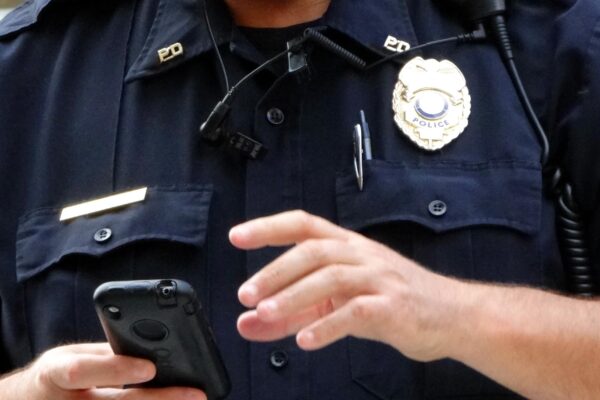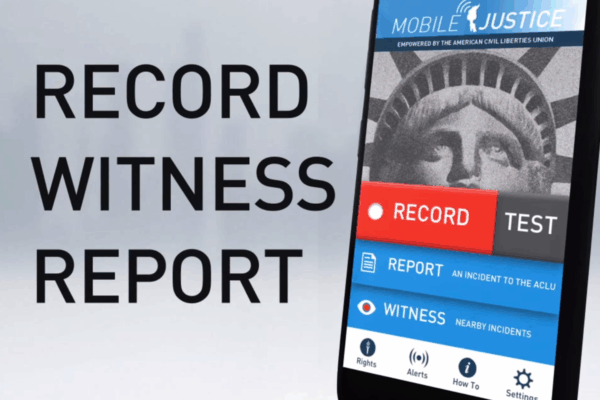In the 2016 Legislative session the ACLU of Nebraska, Media of Nebraska, and law enforcement leaders, came together to support LB 1000 which was adopted on an overwhelming vote of 45-0. LB 1000 requires the Nebraska Crime Commission to develop uniform, minimum standards about the use of body-worn cameras as well as standard rules for retaining the recordings.
On January 1, 2017, the Nebraska Crime Commission’s uniform, minimum policies go into effect for law enforcement agencies. Individual police agencies may go beyond these minimum standards, and no agency is required to purchase or use body-worn cameras. The new rules simply require any agencies with cameras to have a policy consistent with that developed by the Crime Commission.
Many hope that body-worn cameras might be part of the solution to preventing abuse of power by police officers. Body-worn cameras can also aid law enforcement in the collection of evidence and even protect officers from false accusations of misconduct. The ACLU is opposed to pervasive government surveillance, but when cameras allow the public to monitor the government instead of the other way around, we generally support their use.
What do these cameras capture? The ACLU can tell you some of what the cameras see, because we are seeing it too, thanks to our free app Mobile Justice Nebraska. The app is available for Android and iPhones and permits the user to record a police interaction. Footage is immediately uploaded for confidential review by the ACLU legal staff. Even if the phone is seized by law enforcement, or a phone is damaged or destroyed, the footage will be safely uploaded and cannot be removed.
We get recorded video submissions from all across the State. This footage shows people interacting with agencies from Nebraska State Patrol to Omaha Police to small county deputies. We are generally pleased with what we are seeing: nearly every recording depicts police doing their job well. We see officers patiently explaining why they have pulled someone over in a traffic stop and being generally respectful (saying “Thank you” and “Please”) to civilians.
We wish every Police Chief and every Sheriff could see their officers on the scene the way we do. Body-worn cameras would permit every supervisor to have a direct opportunity to observe their people in the field. Until every Nebraska law enforcement officer is equipped with a body worn camera, communities can at least empower themselves by downloading Mobile Justice and acting as their own watchdog.
Overall, the ACLU believes that body cameras can be a “win-win”—but only if they are deployed with strong policies to maintain public confidence in the integrity of the system. Body camera policies can protect the public as long as they don’t become yet another system for routine surveillance of the public by the government.
However, body-worn cameras have the potential to invade the privacy of law-abiding citizens. This is particularly true when police enter people’s homes and encounter bystanders, suspects, and victims in a wide variety of sometimes stressful and extreme situations.
We urge individual law enforcement agencies to go beyond the Crime Commission’s minimum standards and require consent to record when officers enter a residence. The only remaining place of privacy in our society is our homes and it is reasonable that law enforcement officers should request permission to record within the residence.
Similarly, we urge that during a civilian interaction “on the street” or outside of a residence, the law enforcement officer should notify the civilian that the officer is wearing a body-worn camera, unless it is impracticable to do so. Everyone--particularly victims and children—ought to be entitled to privacy, dignity, and to be told that they are being recorded.
Finally, we urge individual agencies who have school resource officers at middle and high schools to prohibit the use of body-worn cameras. Agencies should pass policies to ensure that law enforcement officers don’t activate a body worn camera while on the grounds of any public, private or parochial elementary or secondary school, except when responding to an imminent threat to life or health.


